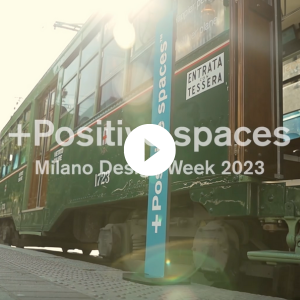The acronym of You Only Live Once, which went viral thanks to a song by rapper Drake and analyzed by Kevin Roose in the New York Times, after the pandemic has turned into a real philosophy and a value that it also guides job choices.
Companies that are reorganizing to return to the office must not overlook that the choices of smart workers will be strongly influenced by the YOLO approach: You Only Live Once!
The most ardent supporters of the YOLO philosophy, in life and work, of course are the young Millennials and Z Generation, the most demanding of experiences that involve and enrich them not only economically, the most determined towards the goal of “working wellbeing” , those most inclined to take risks, to dare and make “courageous” decisions.
The result is a propensity to abandon traditional office work, especially if not very rewarding, in favor of freelance and micro-entrepreneurial activities.
After having tested Smart Working on a large scale (or better Remote Working) the workers do not feel the need to “return to normality”: a normality they have been able to ascertain all the contradictions and criticalities.
Thanks to the imposed role of Smart Worker, the former white-collars have experienced the satisfaction of acquiring new skills, the ability to independently manage time and commitments, both work and personal.
And above all, the dramatic moment of the covid pandemic was an opportunity to establish new hierarchies of values and to resize life priorities, with a clear propensity towards worklife balance.
Many have moved out of big cities to get closer to nature and lower their stress levels. The era of work as sacrifice is over.
From the YOLO mindset derive the Great Resignation and Big Quit phenomena (a survey conducted by Microsoft worldwide in 2021 reveals that 40% of employees are thinking of leaving their jobs) and a general reluctance to return to the office.
The weight of this phenomenon is such that Kevin Roose even talks about YOLO Economy.
Companies must be aware that the rethinking of the office in the era of YOLO Economy must be conceived on different approaches and bases.
It is now clear that individual and concentration work can be done from home or from other remote locations, while teamwork, brainstorming, collaboration and training activities will take place in the office.
Employees criticize the excessive use of video calls, phone calls and virtual meetings in extra working hours, they feel the lack of interactions and social relationships.
Yet they are reluctant to back to the office … in the best of cases, companies register the so-called “Wednesday peak”, the tendency to move to the office only on the central 2 or 3 days of the week, transforming the beautiful headquarters into a desolate desert in the other days.

We tried to summarize in a more concrete way the characteristics that the workplace should have to facilitate the return to the office even for those who manifest the YOLO attitude, because it sounds anachronistic to hear more about horizontal or vertical part time, agile work for a predetermined number. days per week.
The post-pandemic workplace can therefore only be hybrid, smart, sustainable, flexible, welcoming, biophilic, designed to live, work, collaborate, focused on digital nomadism, wellbeing and -why not- happiness.
The flexibility of times and places, autonomy, a not hierarchical and not control-based organization are the main cornerstones together with technological equipment and environmental quality, but no less important are the emotional aspects.
Few are willing to give up a job that gives way for their attitudes and passions.
The work environment must be redesigned as a place where you can feel privileged and pampered, as a space that welcomes people and also nature, where you can spend moments of wellbeing.
The reduction of people simultaneously present in the office inevitably leaves free large surfaces that were previously occupied by desks and which lend themselves to becoming points of strength and attraction of a new office model that definitively cuts the umbilical cord from its Tayloristic origin.
An office where you want to go because in other places it is not so good; where drinks and snacks are offered, set with an area full of greenery, to relax or do pilates together; a room for the music or to play, or a workshop where you can practice your hobbies.
Maybe even an indoor garden that needs our care and that makes us impatient to see if the tomatoes have ripened.
God is in the details – Mies quoted – perhaps even wellbeing is. And so many details are needed to improve the desire to return to the office by followers of the YOLO philosophy.
Text by Renata Sias

















